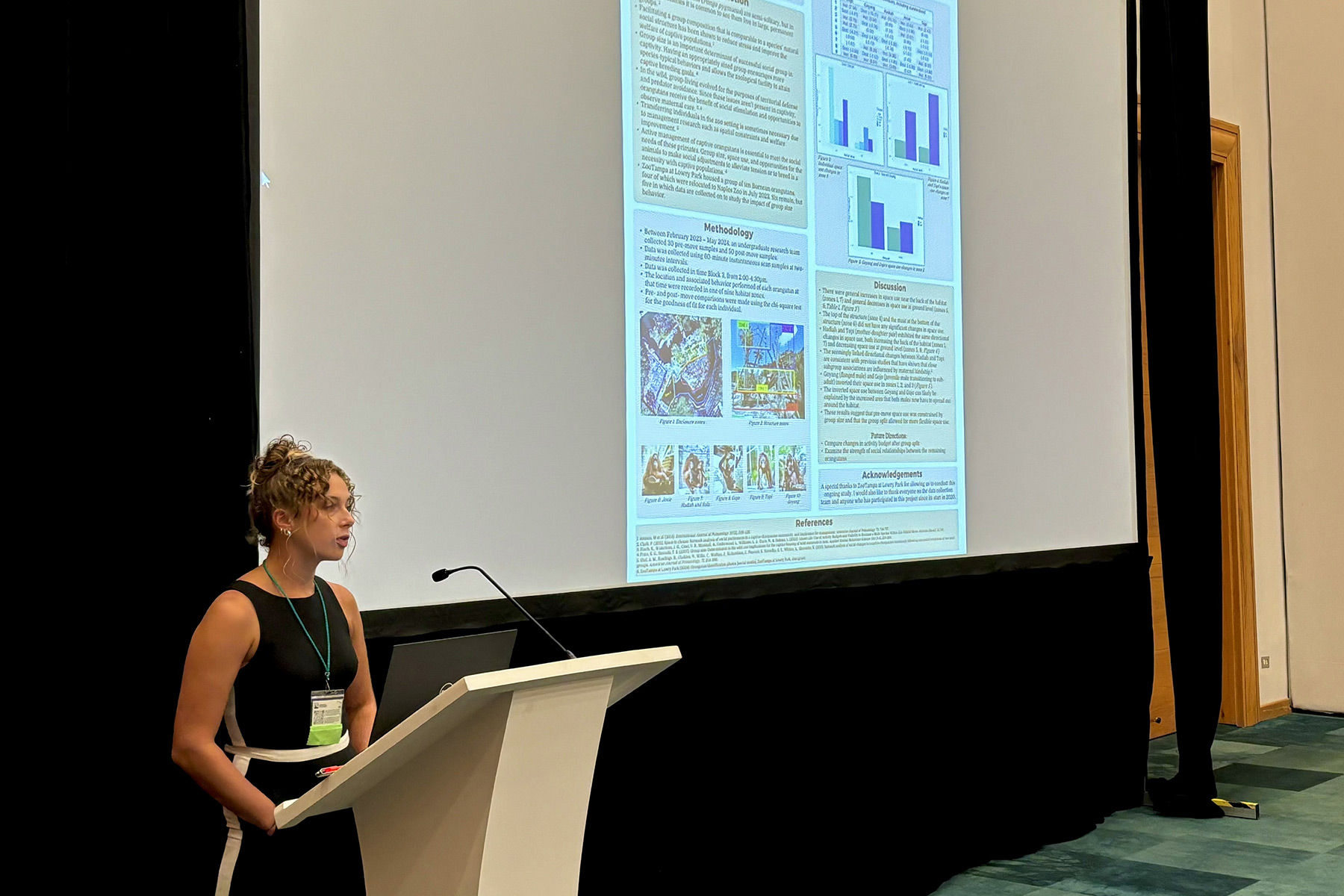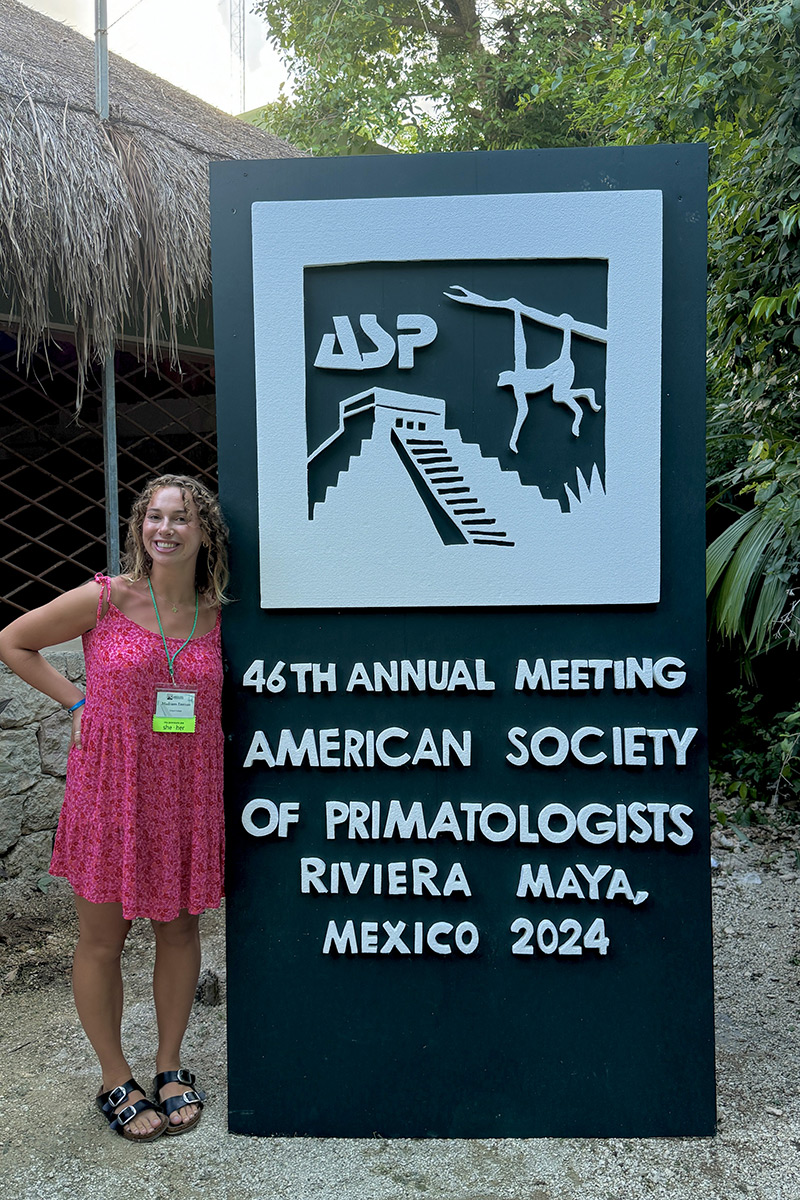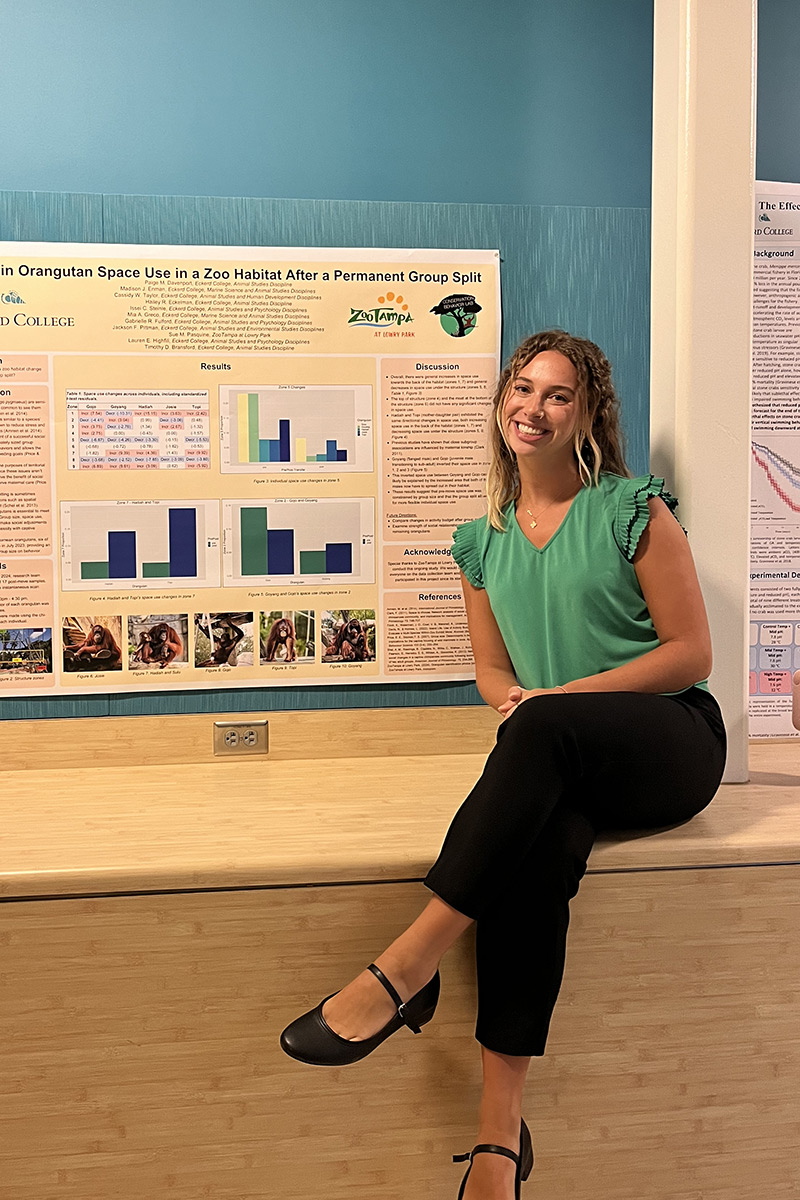Reviewing the intricate details of a paper anonymously submitted to the Florida Undergraduate Research Journal really inspired Eckerd College senior Maddie Enman.
Even though she has been working on a primate behavior study at ZooTampa at Lowry Park—and presented her work at the American Society of Primatologists meeting in Riviera Maya, Mexico, on Sept. 11—she had never thought to submit her own work to the journal.
“I feel like I’m getting to the point where that’s probably a next step for me,” says the animal studies and marine science student from Grayslake, Illinois. “And being on this side, too, I can kind of hear everyone’s comments and use the rubrics and notes. People have said, and I feel like, I could probably produce something that would be good enough for the board.”
Maddie is a new member of the FURJ editorial board—gaining confidence through the process of peer review. She’s the second Eckerd student to serve on the board, and the first since the College joined the Florida Undergraduate Research Association, which hosts an annual conference in addition to publishing the journal.
Melodie Eichbauer, Ph.D., a professor of medieval history at Florida Gulf Coast University, is the journal’s founder and is going into her second year as chair of FURA.
“The point of FURJ is to create that bridge between the campus journal and what they might do in graduate school,” Eichbauer explains. “How do you handle peer review that is a little bit different from your campus peer review? Also, it’s professionalization.”
Editors were selected from a pool of applicants from across the state. Ten were chosen from various disciplines and research backgrounds.
“I modeled it off of [other] journals,” Eichbauer says.
Though she hasn’t published yet, Maddie is no stranger to research. In addition to working on the orangutan monitoring project, where she worked with a team to document the behaviors of a group after four of the 10 animals were moved from Tampa to Naples, she presented work at the Southeastern Psychological Association, the Bermuda Institute of Ocean Sciences and the Eckerd College Research Symposium. Her areas of study range from animal behavior to coral spawning.
“A lot of undergraduates across the country really don’t have the opportunity to get involved in research and even have something published as an undergraduate,” Maddie adds.
“So getting involved early on opens a lot of doors for you. And I think it just shows the kind of person you are, even if you don’t necessarily have something published. If you have been working on something, you’ve been going to conferences or you’ve been involved, I think employers and grad schools see the dedication.”
As a member of FURA, Eckerd plans to continue to send students to the organization’s annual conference and encourage them to submit to FURJ, in the hopes of strengthening their research and presentation skills and preparing them for life after graduation.
The organization’s 20 member institutions support one another through sponsoring an annual symposium for faculty on best practices in student research, providing a biannual opportunity for students to present research to policymakers at the Florida Capitol rotunda, offering a chance to publish in the journal and more.
“Undergraduate research is one of the most important high-impact practices a student can engage in,” Eichbauer says. “This can be from a disciplinary standpoint but also from a community-engaged research standpoint—working with community partners to tackle an issue that they’re facing.”















